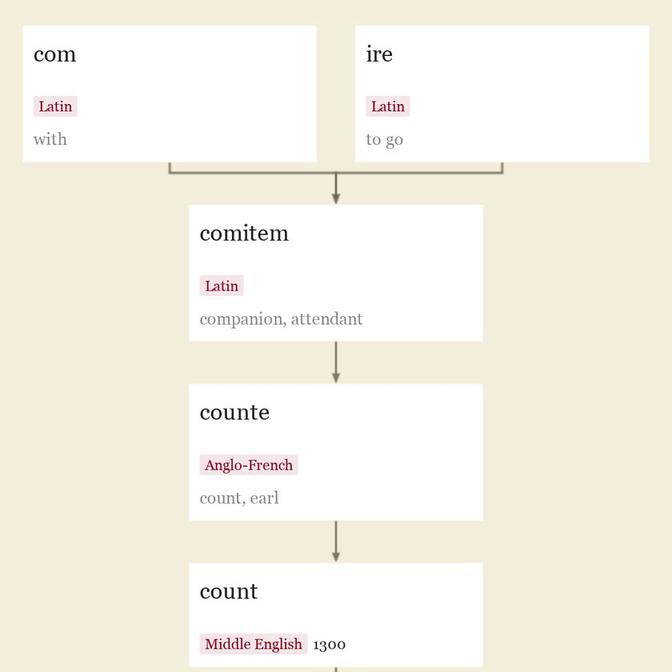countess (n.)
“伯爵夫人”的英法语中采用了12世纪中叶的“cometissa”,源自拉丁语中的女性形式“comes”(参见 count(n.1))。也用于翻译相当于女伯爵的欧洲贵族头衔。
最早记录年份: mid-12c.
countess 的相关词汇
count (n.1)

在一些大陆国家中,贵族的称号,对应于英国的 earl,大约在公元1300年左右,源自盎格鲁-法语的 counte "伯爵,伯爵"(古法语 conte),源自拉丁语的 comitem(主格 comes)"同伴,随从",罗马时期对省长的称呼,源自 com "和"(参见 com-)+ ire "去"的词干(源自 PIE 词根 *ei- "去")。这个术语在盎格鲁-法语中用来翻译古英语的 eorl,但这个词从未真正被本土化,主要是用来指外国的称号。
In ancient Rome and the Roman empire, [a comes was] a companion of or attendant upon a great person; hence, the title of an adjutant to a proconsul or the like, afterward specifically of the immediate personal counselors of the emperor, and finally of many high officers, the most important of whom were the prototypes of the medieval counts. [Century Dictionary]
在古罗马和罗马帝国中,[ comes ]是伟大人物的同伴或随从; 因此,是副总督等的副官的称号,后来特指皇帝的直接个人顾问,并最终成为许多高级官员的称号,其中最重要的是中世纪伯爵的原型。[世纪词典]
contessa (n.)
"意大利女伯爵",1819年,源自意大利语 contessa,源自中世纪拉丁语 cometissa(参见 countess)。